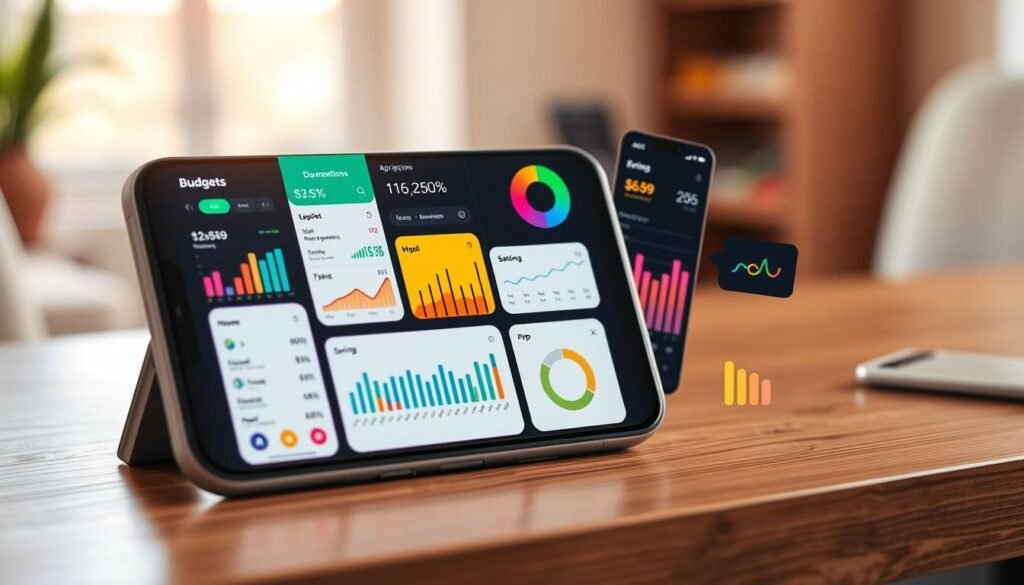Top 5 cResolutions for 2024: Achieving Your Money Goals
As the new year comes, it’s a great time to look at your finances and set goals. You might want to save more, pay off debt, or manage your money better. Making a strong financial plan can greatly improve your financial health over time.
This section will cover the top 5 financial resolutions for 2024. It will give you practical advice and tips to help you meet your financial goals.
Key Takeaways
- Prioritize financial goal-setting for 2024
- Explore practical strategies to improve money management
- Identify areas for savings and debt reduction
- Utilize budgeting tools and apps to track expenses
- Develop a comprehensive financial plan for long-term success
Start Budgeting and Tracking Your Expenses
Making a budget is key to reaching your financial goals. By watching your spending, you can find where you’re losing money. Then, you can adjust to save more.
Identify Financial Leaks
First, find where you’re losing money in your budget. Look at all your expenses, both regular and extra. See where you might be spending too much or wasting money. This can show you ways to save and focus on what’s important.
Utilize Budgeting Apps and Tools
Using budgeting apps and money management tools can make budgeting easier. These tools can sort your expenses, show your spending habits, and give advice to keep you on track.
| Budgeting App | Key Features | Pricing |
|---|---|---|
| Mint | Automatic expense tracking, budget creation, credit score monitoring | Free |
| YNAB (You Need a Budget) | Zero-based budgeting, debt management, financial education | $14.99/month or $98.99/year |
| Personal Capital | Comprehensive financial management, investment tracking, retirement planning | Free for basic features, $100,000 minimum for wealth management services |
These budgeting apps and expense tracking tools give you a clear view of your spending. They help you make smart choices for your money.

Build an Emergency Fund
Creating an emergency fund is key to financial stability. It acts as a safety net for unexpected costs like medical bills, car repairs, or losing a job. Having this fund means you won’t have to use high-interest credit cards or loans, which can lead to debt.
It’s wise to save 3 to 6 months’ expenses in your emergency fund. This helps cover your basic costs during tough times, like rent, food, and utilities. Think about your monthly bills and adjust the savings amount to fit your situation.
Building your emergency fund means saving regularly and consistently. Set up automatic transfers from your checking to savings. See this savings as essential, like paying rent or car loan. As your fund grows, you’ll feel more secure, ready for any surprise expenses.














Post Comment